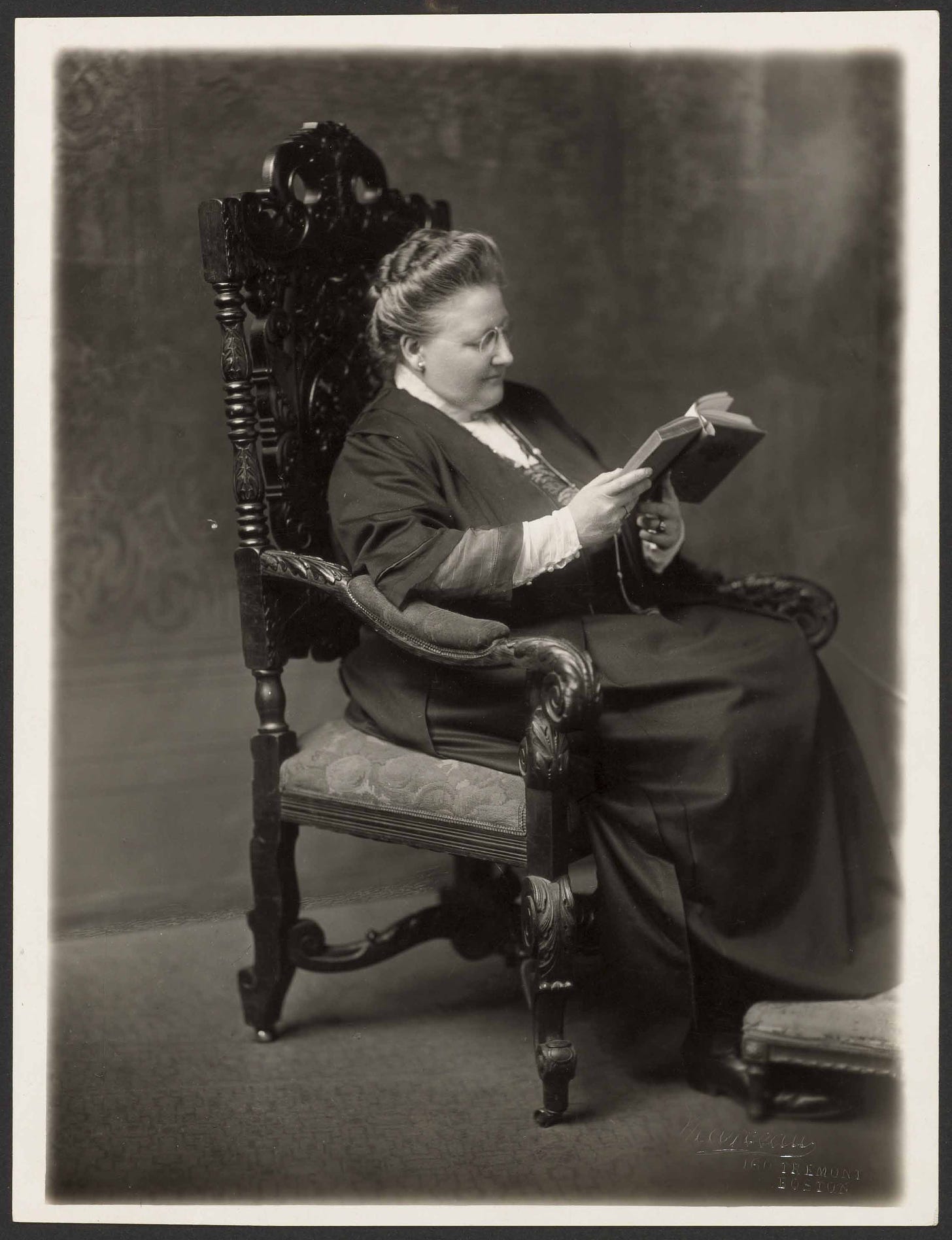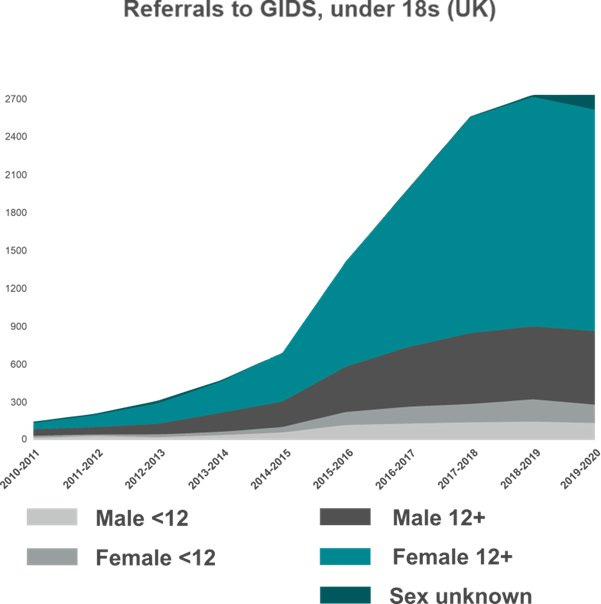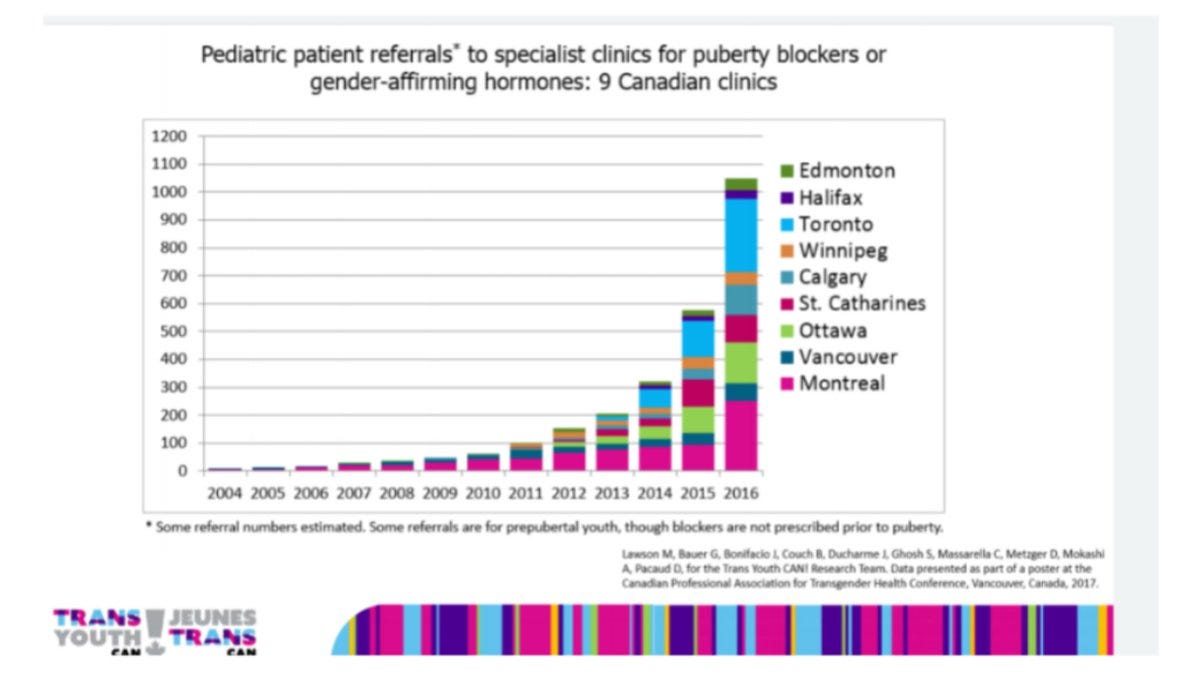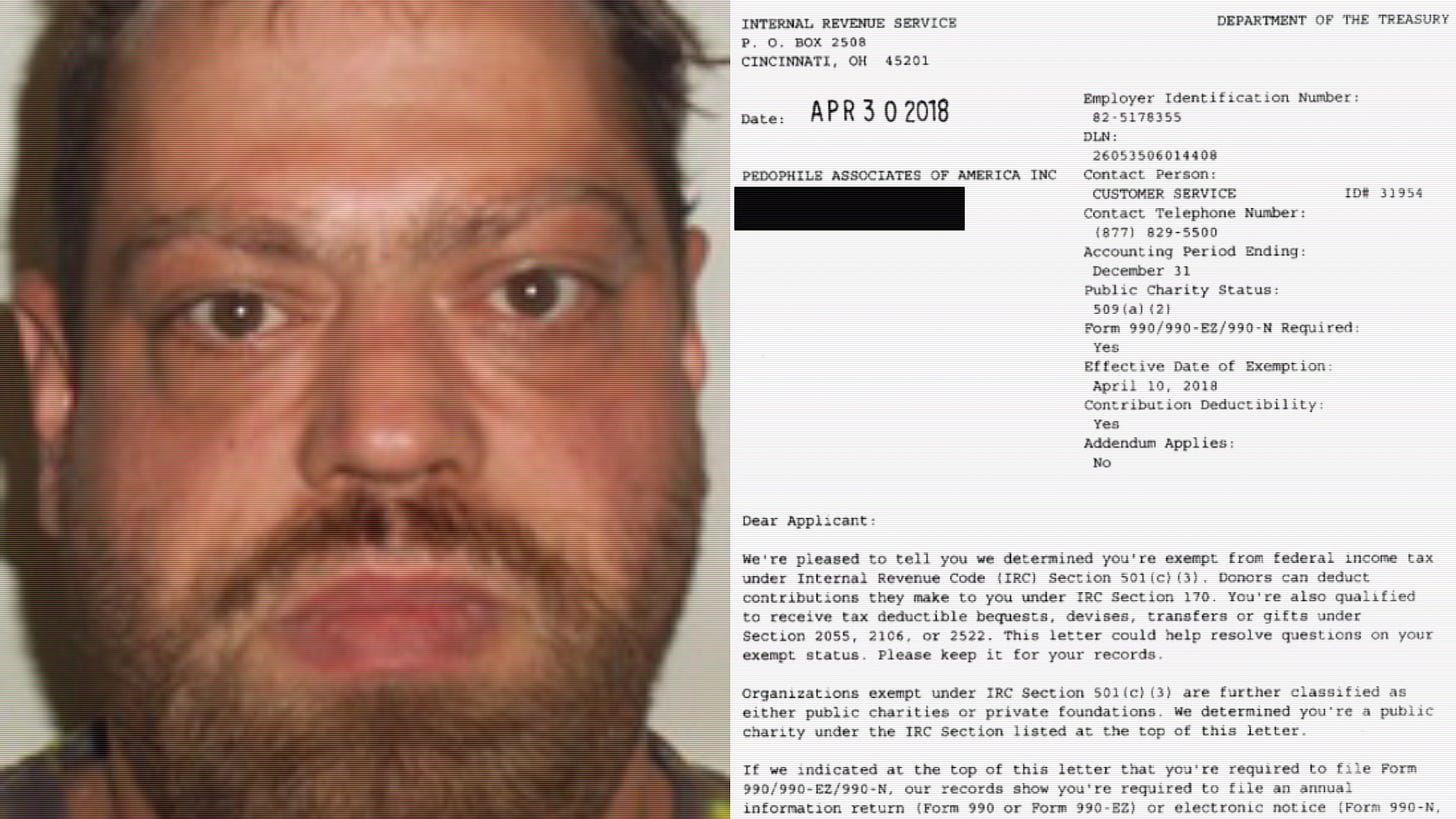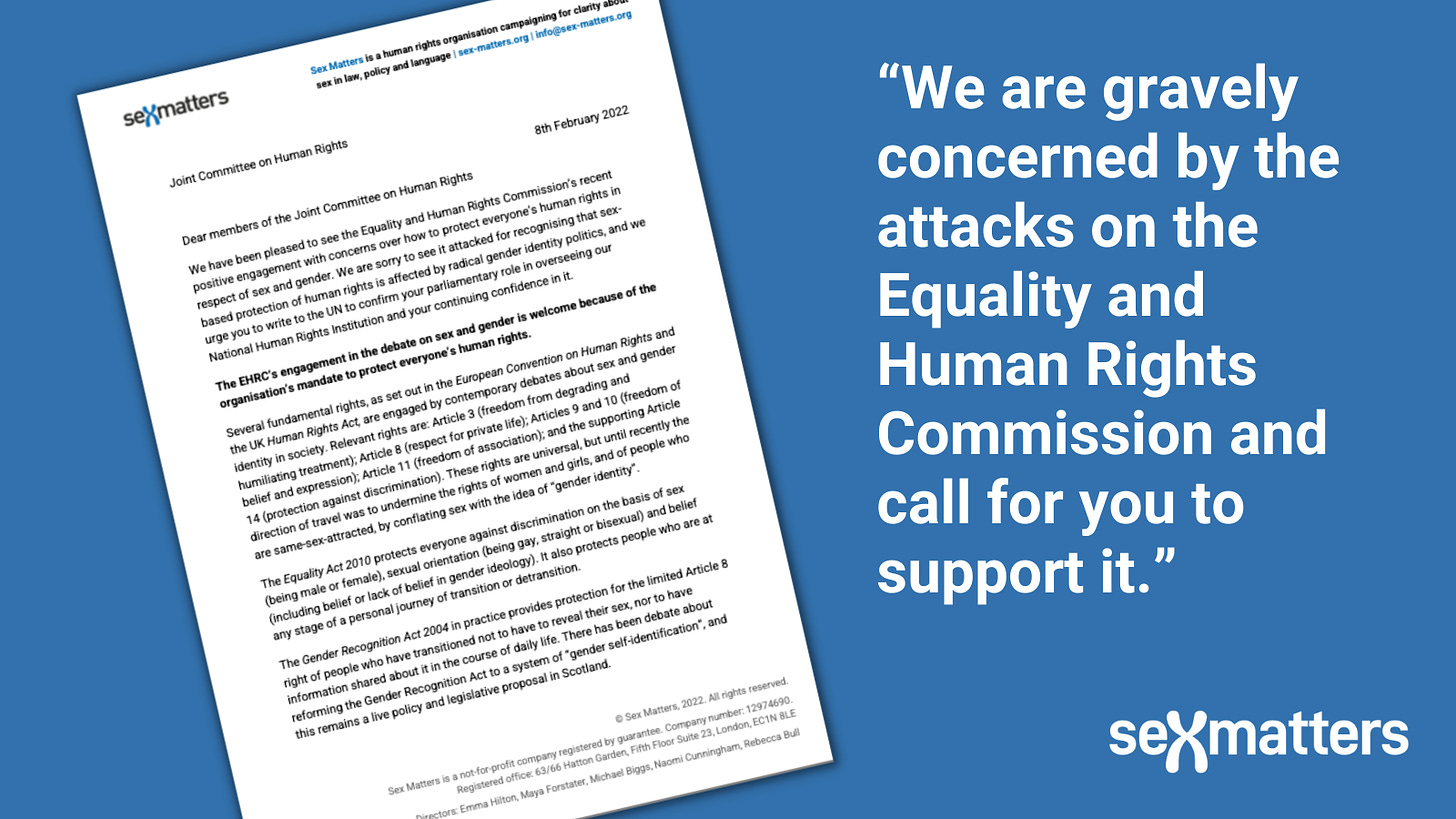This day in Herstory: Amy Lawrence Lowell, born February 9, 1874 (died May 12, 1925), was an American poet of the imagist school, which promoted a return to classical values. She posthumously won the Pulitzer Prize for Poetry in 1926.
Don’t let the sexists silence you, Adele. There’s NOTHING transphobic about saying you’re proud to be a woman
From Mail+ (UK)
By JULIE BINDEL
Feb 9, 2022
In the war over gender ideology, the bar is now so low that a world-class limbo dancer would have problems.
Accepting her gong at the Brit Awards, Adele commented on the new gender-neutral category, saying, ‘I understand why the name of this award has changed, but I really love being a woman and being a female artist. I do. I’m really proud of us, I really, really am.’
It’s so lovely to hear anyone in the public eye saying she loves being a woman these days, rather than holding back for fear of offending. A lot of what we see as generational tension in feminism comes down to a form of self-loathing. It’s a new way to rationalise the shame imposed upon us of being female.
But, in current times, any reference to being an actual woman is deemed to be bigoted, because it supposedly excludes transwomen. There is no such pressure on men to rewrite language to accommodate transmen. I’ve never seen the term ‘prostate havers’ in order to avoid offending the trans community, whereas ‘cervix havers’ has been bandied about for some time.
However, Adele, just for expressing pride in her sex, is being slated by some extremists on social media. One person with she/her pronouns on Twitter was ‘disappointed’ that Adele appeared to be ‘one big stonking transphobe’. A number of ‘trans ally’ bearded dudes are going into meltdown exclaiming ‘TERF’, and Adele is perilously close to becoming a target of trans activists. … read full article
A thread about social contagions
From Twitter
By @_CryMiaRiver (republished with permission from the author)
Feb 8, 2022
In 1972, British psychologist Gerald Russell treated a woman with an unusual eating disorder involving binging and purging. Over the next 7 years, he saw a further 30 women presenting with the same condition.
In 1979, he wrote a paper published in Psychological Medicine, in which he gave it the name bulimia nervosa. The condition was included in the DSM-III the following year. Then something remarkable happened. The illness swept the globe like wildfire, affecting an estimated 30 million people by the mid-1990s, the majority of whom were teenage girls and young women.
The explanation for this rapid spread is what philosopher Ian Hacking calls 'semantic contagion' - how the process of naming and describing a condition creates the means by which the condition spreads. The epidemic of multiple-personality disorder in the 90s was spread this way.
Bulimia entered the lexicon via women's magazines such as Mademoiselle and Better Homes and Gardens, which ran stories about this new and worrying disorder affecting women and girls. Multiple studies demonstrate the media's culpability in the spread of social contagions.
In the first decade of the 21st century, the seeds were sown for another global contagion. A rights movement that started out with the aim of improving the lives of transgender people has given rise to a new type of gender dysphoria with all the hallmarks of a social contagion.
Just like bulimia, gender dysphoria was virtually unheard of in the teenage girl population prior to 2010, and then, all of a sudden, countries all over the industrialized world saw an explosion of adolescent girls identifying as transgender.
It was the perfect storm. In the 2010s, the media fascination with transgenderism began with 'Caitlyn' Jenner and I Am Jazz; the political left became infatuated with trans rights, and schools started teaching gender ideology to children as young as kindergarten.
Social media came on the scene and provided the perfect super-spreading environment. Teenage girls are now just one click away from 1000s of TikTok and YouTube videos of young women proudly showing off their mastectomy scars and extolling the joy of taking testosterone.
Just as this new, atypical type of gender dysphoria was emerging, gender clinics, at the behest of activist groups, abandoned the psychotherapeutic approach of watchful waiting and adopted the affirmative model - fast-tracking these teens to irreversible medical procedures.
We're in the eye of the storm right now, so most people can't see the damage being done. But soon, all the young people emerging from this contagion sterile and missing body parts will be visible for all to see, and people will be horrified that they supported such evil.
Pro-Pedophile Activist Head Arrested for Child Sexual Abuse Images
From REDUXX
By Anna Slatz
Feb 9, 2022
The President of a registered pro-pedophile activist charity called the Pedophile Associates of America has been sentenced on charges of possessing images of child sexual abuse for the second time.
Ian Andrew Zearley was first arrested in 2010 and was convicted of two counts of child pornography possession. At the time, the FBI had reported that Zearley’s hard drive contained over 600 child sex exploitation pictures and videos, including one over 19-minutes long of two men tying up and raping a 10-year-old boy.
Zearley was released approximately 6 years later, but was arrested again in 2019 on similar charges and pleaded guilty in 2021. On January 20, 2022, he was sentence to 15 years in prison followed by a lifetime of supervised release.
The serial pedophile was arrested after law enforcement officials monitoring his internet access discovered Zearley had searched terms consistent with attempting to access child sexual abuse materials in breach of his release conditions.
According to the Department of Justice, Zearley had been searching for terms such as “real hardcore child porn” and “boys severely whipped and bleeding.” Zearley also authored two stories that described, in graphic detail, the rape and abuse of young boys. … read full article
Will the Joint Committee on Human Rights defend the EHRC?
From Sex Matters (UK)
Feb 8, 2022
Sex Matters has written to the Joint Committee on Human Rights (JCHR) to urge it to write to the United Nations to confirm its parliamentary role in overseeing the Equality and Human Rights Commission (EHRC) and stating its confidence in the EHRC, after recent attacks which have sought to undermine it.
The mandate of the EHRC is to balance everyone’s human rights, and we are glad to see it recognising that sex-based protection of human rights is affected by radical gender-identity politics. The relevant rights in the European Convention on Human Rights and the UK Human Rights Act are:
Article 3 (freedom from degrading and humiliating treatment)
Article 8 (respect for private life)
Articles 9 and 10 (freedom of belief and expression)
Article 11 (freedom of association)
and the supporting Article 14 (protection against discrimination).
These rights have started to be undermined by conflating sex with the idea of “gender identity” and this affects women and girls, and anyone who is same-sex-attracted.
The Equality Act 2010 protects everyone against discrimination on the basis of sex, sexual orientation and belief (including belief or lack of belief in gender ideology), as well as protecting people who are at any stage of transition or detransition in gender reassignment. The Gender Recognition Act 2004 in practice provides protection for the limited Article 8 right of those people not to have to reveal their sex, nor to have information shared about it in the course of daily life. There has been debate about reforming this to allow “gender self-identification”: in Scotland this is a live policy and legislative proposal. But the interaction between these laws and the underlying human rights of all people is complex. The recent case of Forstater v CGD (in which the EHRC intervened) confirmed that:
“The GRA does not compel a person to believe something that they do not.”
In a letter to the Scottish Government, the EHRC highlighted concerns about:
“the potential consequences for individuals and society of extending the ability to change legal sex from a small defined group, who have demonstrated their commitment and ability to live in their acquired gender, to a wider group who identify as the opposite gender at a given point.”
The EHRC’s guidance on single-sex and separate-sex exceptions in the Equality Act is also badly needed, to allow everyday and specialist single-sex services.
It is also essential that digital identity information systems – especially those used by the healthcare system – are able to recognise that biological sex remains a fact of life, however people choose to identify. Forthcoming government plans to develop a digital identity and attributes framework present an opportunity to reconcile the need for accurate sex-based information with some people’s desire to express a gender identity. … read full article
New York Republican revokes support for bill creating gender identity protections
From Washington Examiner (USA)
by Julia Johnson
Feb 9, 2022
New York Rep. Elise Stefanik withdrew her support for the controversial Fairness for All Act during a Tuesday night procedural vote.
The third-highest-ranking Republican in the House was previously a co-sponsor of the measure, among 22 others, as of November 2021, according to a report.
Stefanik joins the likes of Reps. Claudia Tenney and Jeff Van Drew, who both recently withdrew their own support for the bill.
The bill seeks to create protections for both gender identity and sexual orientation in U.S. civil rights law, with some exemptions for religious organizations. It names its purpose as prohibiting "discrimination on the basis of sex, sexual orientation, and gender identity" and protecting "the free exercise of religion." … read full article
Proposed insurance rule ignites debate over transgender health care
Some private insurers say the Democratic proposal could drive up costs and its language describing what counts as discrimination is too vague
From Roll Call (USA)
By Ariel Cohen
Feb 9, 2022
Private insurance companies, patient advocacy groups and conservative organizations are at odds over a proposal to limit discrimination by health plans for medical care for transgender people and other LGBTQ consumers.
The Biden administration, Democratic lawmakers and advocates say the proposal is essential for ensuring that LGBTQ people can access care, but some private insurers say the policy could drive up costs and the language describing what counts as discrimination is too vague. Meanwhile, conservative advocacy groups argue there is no clinical evidence for covering care that affirms the gender the consumer identifies with, such as hormone blockers or surgery.
The policy is tucked into the Biden administration's proposed rule for 2023 for the government health insurance exchanges. The rule, known as the Notice of Benefit and Payment Parameters regulation, would require health plans to ensure their benefit designs and implementation do not discriminate based on sexual orientation, gender, age, sociodemographic factors or other conditions.
The Obama administration first used this standard, but President Donald Trump's administration removed sexual orientation and gender identity from the anti-discrimination language. The Biden proposal would essentially restore and enforce protections for those groups.
Under the proposal, an insurer in the exchanges would not be considered to provide the essential health benefits required by federal law if that insurer is found to discriminate. Health plan benefit designs also must be based on clinical evidence. All of this would be enforced by state regulators.
A plan would not have to cover every possible health care service, explained Katie Keith, a researcher at Georgetown University’s Center on Health Insurance Reforms. But a plan cannot have a different level policy or plans with more restrictions for transgender people than people whose gender identity and sexual orientation matches their birth gender.
In the rule, the Department of Health and Human Services and the Centers for Medicare and Medicaid Services listed a few examples of presumptive discrimination within a health plan that would be banned, including limiting gender-affirmative care within a health plan. Several state health plans either do not address coverage for gender dysphoria or limit coverage for specific gender-affirming services for transgender people. … read full article
Bill would ban hormone treatment for transgender minors
From AP News (USA)
By Kim Chandler
Feb 9, 2022
MONTGOMERY, Ala. (AP) — A legislative committee has advanced a proposal that would prohibit transgender minors from being treated with puberty-blockers, hormone treatment or surgery to affirm their gender identity.
The Senate Health Committee advanced the bill, which would make it a felony, punishable by up to 10 years in prison, for a doctor to prescribe puberty-blockers or hormones or perform surgery to aid in the gender transition of people 18 years(backslash) old or younger. The bill now moves to the full Alabama Senate.
“This bill is strictly about protecting children,” Republican Sen. Shay Shelnutt of Trussville told the committee. “It just prohibits medical treatments on otherwise healthy minors. Those medical treatments are surgeries, puberty-blockers and cross-sex hormones,” Shelnutt said. He added that he understands those surgeries aren’t performed in Alabama, but he said it is important to ban hormonal treatment. … read full article
Coalition’s religious discrimination bill passes after marathon all-night sitting
Controversial legislation passes lower house despite Liberal moderates defecting to help add more extensive protections for LGBTQ+ students
From The Guardian (UK) - Australia news
By Paul Karp
Feb 9, 2022
The Morrison government has passed the religious discrimination bill in the House of Representatives after a marathon all-night sitting, despite Liberal moderates defecting to help add more extensive protections for LGBTQ+ students.
The Liberal MPs Bridget Archer, Trent Zimmerman, Katie Allen, Fiona Martin and Dave Sharma crossed the floor against the government, helping Labor and the crossbench add protections for LGBTQ+ students into the Sex Discrimination Act.
The main bill received a third reading at 4am, officially passing the lower house with Labor support after Wednesday’s resolution by the opposition caucus to fight for amendments but not oppose the bill at the final stage.
The human rights amendment bill, which now prevents religious schools discriminating against students on gender and sexuality, passed shortly before 5am – despite a last-ditch attempt from the government to defeat its own legislation.
Labor and several of the government’s own members were galvanised by the Morrison government revealing it will protect gay students from expulsion – but not other forms of discrimination – without protecting trans students at the same time.
Zimmerman told the house the parliament could not send a message by “omission” by moving to fix sexuality discrimination but not gender identity discrimination. “I could not live with myself if I didn’t seek to address those issues.” … read full article



